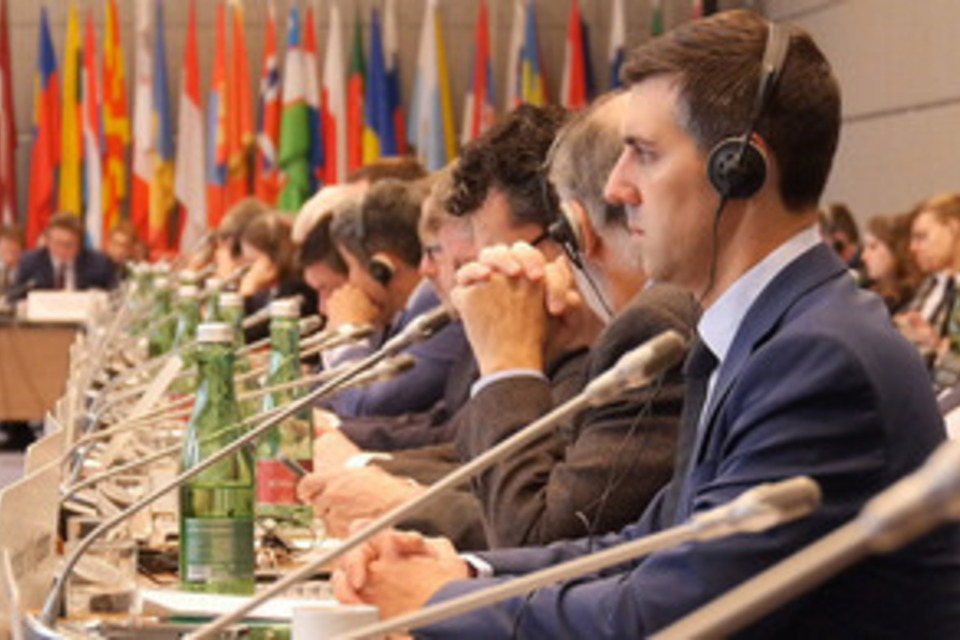OSCE Programme Office in Bishkek: UK statement
Delivered by Ambassador Neil Bush at the virtual OSCE Permanent Council on 21 May 2020.

We welcome and thank Ambassador von Arx, Dr Alexander Wolters, and their colleagues for their report to the Permanent Council and the work they have undertaken at the Programme Office in Bishkek over the last year.
Kyrgyzstan is an important partner to the UK. We recognise the role Kyrgyzstan has played – supported by the work of the Programme Office – in implementing the Electoral Legislation Improvement Strategy in 2018-20. I was pleased to read about the concrete results they have achieved.
It is good that the OSCE Academy has continued its development. This flagship initiative is an important resource in building long-term security, as now more than 500 post-graduates, educated in the areas of politics, security and governance, can meaningfully contribute to protecting their region’s prosperity and development. I wish the Academy every continued success.
Mr Chair, I would like to pick out three areas of the Office’s work that I think deserve special mention.
First on transnational threats. We support the mission’s activities on capacity building for law enforcement and border service officers; on legal assistance; and on draft regulation development. In addition, I would like to mention the important work on cyber security, and in particular the training courses offered on cybersecurity for the Computer Emergency Response Teams staff, as well as the organising of Barrier 2019.
Second, the work on the third dimension. I thank the Ambassador for his team’s work supporting the Ministry of Culture, Information and Tourism in launching a co-ordination platform to discuss common challenges in media freedom. This includes the proliferation of disinformation. We would like to see a continued guarantee of a free, open and secure internet, including ensuring freedom of expression online. We would also like to see the Kyrgyz government recognise the important role non-commercial organisations play in a democratic society and hope they can work with the OSCE to ensure that the proposed amendments to the law on non-commercial organisations are in line with international human rights norms.
Third, I would like to pay tribute to the gender-mainstreaming efforts undertaken by his team, and the specific work done to progress gender equality. This includes supporting the implementation of the Electoral Legislation Improvement Strategy 2018-2020, which ensures a 30 per cent gender quota in local councils; and the expansion of the Women Initiative Groups to improve women’s participation and combat gender-based and domestic violence. Mr Chair, tackling violence against women and girls is essential in defending human rights and reducing inequality.
Further, I was heartened to read about the improved monitoring and evaluation methods employed, so that concrete results can be better identified. I would encourage you to share this best practice and promote the effect of your operation so that we rightly recognise the good work done by your mission.
I would like to finish by thanking Ambassador von Arx for his leadership of the OSCE Programme Office in Bishkek over the last four years, as well as his chairing of the Board of Trustees of the OSCE Academy, and I wish him all the very best for the future.